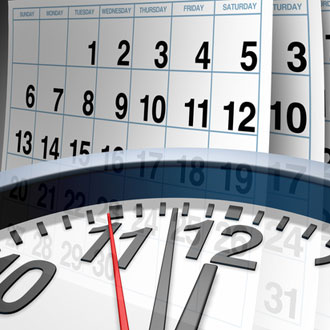
Dr Laura Edwards: Find out which staff it affects, then write a policy between you
Late patients are frustrating, especially in the busy days I all now face. There are no rules stating that patients have to be seen at any time between 8am-6.30pm – you simply need to meet their reasonable needs as a practice.
But it can be difficult to assess clinical need without seeing the patient – refusal to see can cause significant problems down the line. There is no straightforward black and white answer to the ‘how late?’ question.
I would advise developing a practice policy with staff members involved. You could then create a policy which you could use internally and put the advice on your surgery website.
However, it is unwise to get into battles with patients and you also need to be sympathetic to circumstances – when you see patients late you can refer to your practice policy as your approach and educate them for the next time.
If there are persistent offenders with no good reason then you can reasonably use the policy but I would advise documenting in the notes the warnings the patient has been given at previous appointments.
There have been instances where patients are refused to be seen and have had a health emergency later that day – that is a larger problem than seeing them. Options might include seeing them at the end of surgery or briefly assessing and then rearranging according to need – there is no one single answer to this.
We would however always advise that it is better to resolve situations there and then with the patient.
Dr Laura Edwards is medical director of Wessex Local Medical Committees.

Dr Harry Yoxall: Avoid hard-and-fast rules
The essential services clauses in the GMS contract do not specify how a practice should organise its appointment system, but it is worth noting that this section does speak of services being provided in a way determined by the practice ‘in discussion with the patient’. With the growing expectation that patients should be involved in decision making , and it being good business sense to consult customers about service changes, your first step should be to talk to your patient participation group. And would the GPs expect their patients to ask for a new appointment if the doctor was running 10 minutes late?
It is usually unwise to introduce rigid rules about appointment booking, and better to ensure your reception staff are well trained and able to use their experience and discretion. If a young mother with a poorly child has been offered an immediate appointment but is held up in the traffic it makes no sense for her to be sent away for being late, especially if the child turns out to have meningitis.
If you must have a rule, it is probably better that late patients should be offered a choice of re-booking or waiting until the end of the surgery, and persistent offenders – whose lives are usually chaotic anyway – may need to have tailored arrangements made.
But the real question here is why this has become a significant problem for the practice and perhaps a thorough review of its systems would suggest a way it could be ‘engineered out’.
Dr Harry Yoxall is chair of Somerset LMC.

Dr Beverley Ward: Audit the problem to decide how severe it is
From a medico-legal point of view, you may be exposing yourself to complaints if you cancel appointments in this way. It may be that the patient is harmed due to a delay in diagnosis if not seen that day, for example.
A patient who arrives late may be dissatisfied if they are expected to return later or even another day, which could also lead to complaints. Bear in mind that there may be extenuating circumstances for the lateness such as that the patient is extremely unwell, disabled, has poor mental health or is very elderly.
Given that doctors have an ethical responsibility to treat patients on the basis of clinical need, and must be readily accessible to patients seeking advice and support ,and make adjustments for the disabled, such a rule may even lead to a complaint to the GMC.
Rather than having a blanket rule about lateness, it may be more appropriate to offer the late patient a chance to rebook if not urgent or to try to slot them in between other appointments if they need to be seen urgently. If a particular patient regularly arrives late for an appointment, consider discussing the reason for the late running with them, explaining the repercussions it has on the running of the practice.
Consider an audit of missed appointments and patients who arrive late. If you discover it is a major problem, there may be other actions you can take to help patients navigate the appointments process. Text reminders may help, though I advise practices to seek patient’s specific consent to opt-in to texting. You may also want to review the information you publish on your website and in your information leaflet so that patients are aware of your policy on late arrivals.
Dr Beverley Ward is a medico-legal adviser for the MDU.
















